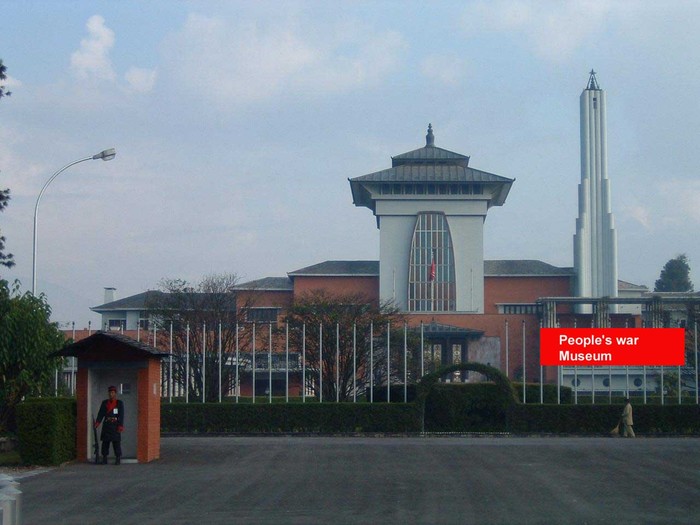Demise of monarchies
Monarchies can come to an end in several ways. There may be a revolution in which the monarchy is overthrown; or, as in Italy or Greece, the electorate decides to form a republic by constitutional referendum. In some cases, as with England and Spain, the monarchy has been overthrown and later restored.
After the abdication of Napoleon I, which ended the First Empire, the French restored the royal Bourbon dynasty which had been abolished by the republic within which Napoleon had established the Empire. At the same time, his emperorship was "revived" outside France, as a "golden cage" principality was created for him on the island of Elba, so in a sense the empire was succeeded by a kingdom and an emperor without an empire.
Dependent monarchies have been abolished by their dominant power, often for the purposes of being fully annexed, split or merged with another. In Uganda, for example, local tribal monarchies were abolished when the country became a unitary state.
The most recent monarchy to be abolished was the former Commonwealth Realm monarchy of Mauritius in 1992. In 1999 Australians voted to keep their status as a constitutional monarchy under Queen Elizabeth II. In December 2007 the Nepalese government agreed to abolish the country's monarchy after the Constituent Assembly elections in 2008.
Countries may regard themselves as monarchies even without an actual monarch on the vacant throne, as Spain did from 1947 to 1975, and Hungary from 1920 to 1946.
A person who can be taken into consideration as future monarch in case of restoration of monarchy (or who even claims to be the legitimate heir to the throne of a deposed or in the royalist view suspended monarchy) is called a pretender, but that term also applies to a rival claimant of a filled throne, such as the several Russians who claimed to be a Tsar simultaneously.
Throughout history monarchies have been abolished either through legislative reforms, coups d'etat, or wars.
One example is the overthrow in 1649 of the English monarchy by the Parliament of England, led by Oliver Cromwell. The monarchy was restored in 1660. Another is the abolition of the French monarchy in 1792, during the French Revolution. The French monarchy was later restored several times until 1871. The ancient monarchy of China ceased to exist in 1912 after the revolution of Sun Yat-sen. The last emperor of Korea lost his throne in 1910 when the country was annexed by Japan. After the death of the last khagan in 1924 Mongolia became a republic.
In 1893 foreign business leaders overthrew the Queen of the Kingdom of Hawaii. They established a republic, which joined the United States in 1898. The monarchy of Portugal was overthrown in 1910, two years after the assassination of King Carlos I.
The monarchy of Russia was abolished during World War I. The monarchies of Turkey, Germany and Austria were abolished in the aftermath of the same conflict. At the time, monarchies were planned for the Grand Duchy of Finland (to have a Finnish King), and for Lithuania (Mindaugas II of Lithuania), with a protectorate-like dependency of Germany. Both kings renounced their thrones after Germany's defeat in November 1918.
The royal houses of Bulgaria, Serbia, Hungary, Romania, Albania, and Italy were toppled in the aftermath of World War II. In Greece the king was forced into exile after a coup d'état in 1967 and the republic was proclaimed in 1973 (confirmed by referendum in 1974).
The monarchies of India, Kenya, Tanzania, Zambia, and Zimbabwe were abolished when, or shortly after, they became independent of the United Kingdom, while remaining within the Commonwealth in the middle of the 20th century. That of Ireland was not abolished when Ireland became independent of the United Kingdom in the 1920s, but was abolished by the Republic of Ireland Act of 1948, which came into force in 1949. Pakistan became a republic in 1956. The monarchy in South Africa was abolished in 1961 with referendum. The latest country to become a Commonwealth republic was Mauritius in 1992.
That of Egypt was abolished after a coup d'état in 1952; that of Tunisia in 1957, that of Iraq in 1958, that of Libya in 1969, that of Iran was abolished by the Islamic revolution of 1979. In Ethiopia the emperor lost his throne in 1975 due to a communist takeover. Communist revolutions put to end the monarchies of Indochina after World War II: Vietnam in 1955, Laos in 1975 and Cambodia in 1970. Later the monarchy was restored in Cambodia under Norodom Sihanouk in 1993.
Brazil rejected an attempt to restore its monarchy in the 1990s[1], while efforts to restore the monarchies of some of the Balkan states in the former Eastern Bloc continue. In Bulgaria, Simeon Saxe-Coburg-Gotha, who was deposed from the Bulgarian throne in 1946, was elected and recently served as the Prime Minister of his country from 2001 to 2005. In a 1999 referendum, the voters of Australia rejected a proposal to abolish their monarchy in favour of a specific republic model. The proposal was rejected in all states, with only the Australian Capital Territory passing the proposal.









.jpg)

